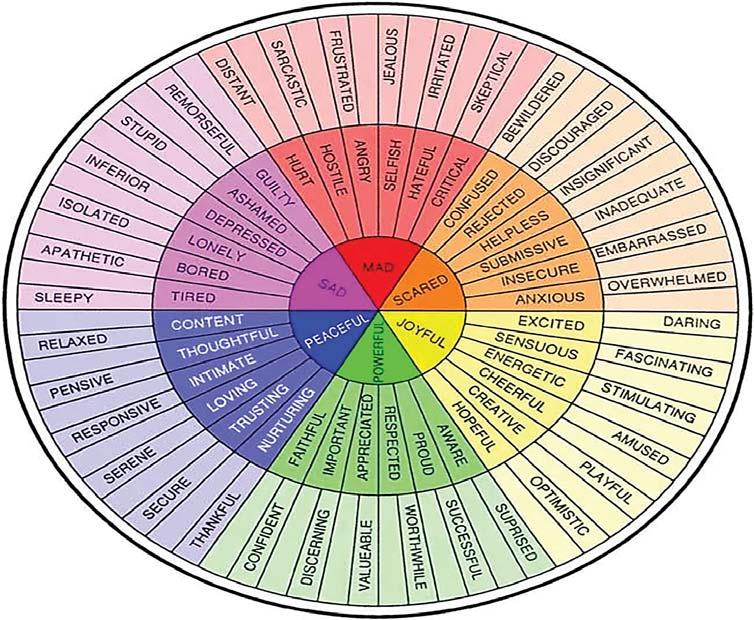
2 minute read
Gerizim ( John 4:20-21

Nakesha Fleming, LMSW, PCAT, BC-TMH
Advertisement
I have been enjoying the information on self-care. We have learned what selfcare is and the different components that are a part of self-care. We have learned about social selfcare and cultivating our connections and relationships, we even discussed setting boundaries. In the last issue, we discussed work self-care and how to work smarter and not harder. Let's go a step further this month. Let's learn emotional self-care. Now I get it. No one likes to discuss their emotions and feelings. Alot of times we are encouraged to keep on pushing, be strong, and not waddle. It is important to remain balanced and not avoid our emotions while also not being led by our emotions.
Emotional health is a critical part of our holistic wellness. How you feel on the inside influences not only your mental wellness but your physical wellbeing as well. Learning emotional self-care will lead you to possess a happier and healthier life. Emotional self-care refers to the act of becoming aware and identifying what you are feeling and allowing yourself to channel those feelings in a way that benefits your overall wellness. Your emotions directly connect to how you feel every day. I encourage you to not ignore them. Knowing how to express yourself healthily will equip you to handle the circumstances of life. When you ignore, avoid, and attempt to suppress your emotions, you are more likely to experience depression, stress, anxiety, and other mental health issues. You are probably wondering what it means to practice emotional self-care? What does it look like? I have provided some tips below: 1. Know Your Feelings: It's natural to want to hold your emotions inside but doing so can be detrimental. An important thing is to learn to feel and be in tune with your feelings. I have provided a feelings wheel to help increase and build your emotional vocabulary. 2. Understand your emotional needs: It is okay selfish. Choosing to focus on your emotional needs first will help you and those around you. 3. Set boundaries: If you struggle with putting yourself first, then you probably also struggle with saying "no." If something or someone is hurting you emotionally, it may be good to evaluate their or its place in your life. Set boundaries and make sure they are respected. 4. Pinpoint your emotional triggers: As you become in tune with your emotions, you will notice patterns. Think about what causes you to feel uncomfortable, and then shift the focus to reduce the impact on your mental wellness. 5. Embrace quiet time: Having quiet time to rest and recharge is valuable to your emotional health, especially in today's fastpaced society. Take some time to meditate, practice breathing exercises, or write in your journal. This can help increase mental clarity and a better understanding of your feelings.
I have listed some tips above, but I am sure there are others you can create and adopt to use. If you find yourself or a loved one in significant distress, please use the crisis numbers below. Help is here.
National Suicide Prevention Lifeline 1-800273-8255
Crisis Text Line: Text HELLO to 741741












